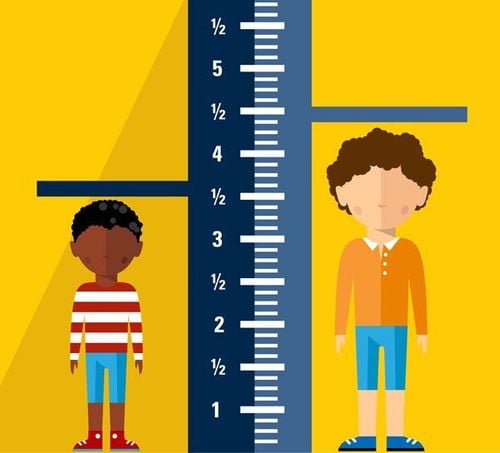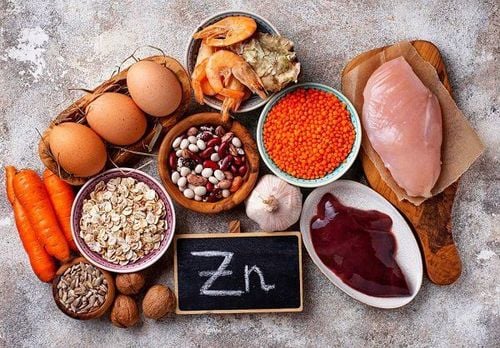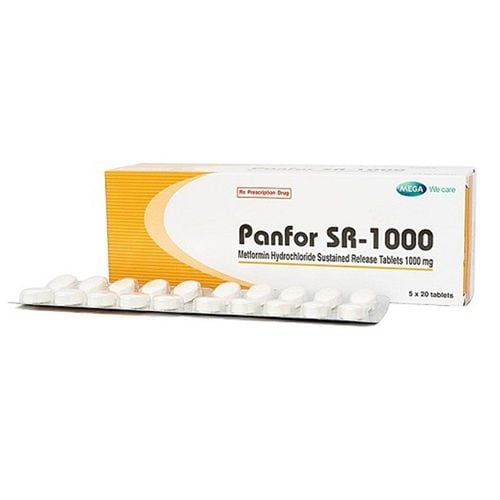This is an automatically translated article.
Zinc is one of the important micronutrients, playing a role in biological processes including cell growth, differentiation and metabolism. Zinc deficiency will limit the growth of young children, stunted children and delayed puberty. In addition, this condition also reduces the ability to fight infections, contributing significantly to morbidity and mortality in young children.
1. The role of zinc in growth and puberty in children
Zinc is an essential trace element with many important biological functions because it is involved in the configuration and function of a wide range of enzymes and transcription factors, cell replication. Zinc is an essential component of many proteins, affects growth by promoting DNA and RNA synthesis and cell division, participates in the formation of organs, body development such as making blood cells, create fat cells, maintain stem cells, develop skeletal and smooth muscle systems, restructure the heart, regenerate retinal neurons.
Zinc is especially important during the formation and development of the fetus, because during this period the cells develop very quickly. Besides, it is also involved in the development of weight and height of infants, children and adolescents. Zinc plays a particularly important role in the immune system because it stimulates the growth of T and B lymphocytes, thereby creating a defense system that helps the body fight pathogens and increase blood sugar levels. strengthen resistance against infection. Zinc is one of the essential minerals for brain development, high in zinc in the memory center of the brain, also known as the hippocampus. Vitamin B6 and zinc have important functions in neurotransmitters. In addition, zinc also plays a role in reproductive function. In men, zinc is found in concentrations in the prostate gland, participates in hormone metabolism, balances prostate function and helps maintain sperm count and motility and testosterone levels. in serum. Zinc deficiency disrupts puberty in boys, reducing sperm quality and male sex drive. For women, zinc has the function of regulating menstruation, reducing the symptoms of premenstrual syndrome.
In addition, zinc also helps to regulate taste and create a sense of appetite. In particular, they have the function of absorbing and metabolizing other trace elements such as magnesium, copper, manganese, etc. Therefore, when the body lacks zinc, it will lead to deficiency or metabolic disorder of many factors. factors that greatly affect health status. Although zinc has such an important role, it only accounts for a very small amount and the signs of zinc deficiency are extremely silent, difficult to diagnose and easy to confuse with other diseases. Moreover, zinc is not stored by the body for a long time to be used when, so you need to actively add zinc from your daily diet.

Trẻ em thiếu chất kẽm sẽ không có cảm giác ngon miệng
2. How does zinc deficiency affect children?
Children lack of zinc is one of the causes of stunting and delayed puberty. The causes of zinc deficiency include malnutrition, alcoholism, malabsorption, extensive burns, chronic debilitating disorders, chronic kidney disease, etc. In addition, some causes lead to zinc deficiency. in children due to side effects of long-term diuretics, use of chelators such as penicillamine for Wilson's disease, and genetic disorders such as enteropathica and sickle cell disease. The need for zinc increases during pregnancy and during development.
Because zinc is necessary for protein synthesis, DNA and cell division. It is believed that the growth effect of zinc is related to its effect on protein synthesis. Therefore, zinc is considered as a growth factor, as a result of zinc deficiency, growth is affected, cells will be slow to divide leading to stunted height growth, bone development disorders and children. stunted growth slow growth.
Clinical manifestations in severe cases of zinc deficiency include vesicular dermatitis, alopecia, diarrhea, emotional disturbances, weight loss, interstitial infections, hypogonadism in men and possibly male hypogonadism. death if not treated. Moderate zinc deficiency is characterized by delayed puberty and growth retardation in adolescents, hypogonadism in boys, rough skin, poor appetite, mental lethargy, slow wound healing, taste and adaptation. unusually dark. Loss of appetite and loss of appetite when zinc deficiency makes stunting even more serious.
In summary, zinc is one of the important micronutrients, playing a role in biological processes including cell growth, differentiation and metabolism. Zinc deficiency in children will lead to stunted growth and delayed puberty. Therefore, parents should give children a variety of foods, when children have signs of zinc deficiency, parents should consider adding zinc from the diet or functional foods.
On the market, zinc is used as a micronutrient, used to provide the body with 2 types of preparations: synthetic zinc and biological zinc. While synthetic zinc is produced industrially from chemical reactions in pharmaceutical factory labs, bioavailable zinc is derived entirely from nature. Accordingly, to produce biological zinc, scientists extract it from organic food sources, similar to how the body absorbs zinc from food. This helps to increase the absorption of zinc into the blood of biological zinc up to 3.7 times compared to synthetic zinc. Therefore, parents need to pay attention to supplement biological sources of zinc from nature so that children can absorb it best.
In addition to zinc, parents also need to supplement their children with other important vitamins and minerals such as lysine, chromium, B vitamins,... errands.
For more nutritional knowledge and child care for each age, parents should regularly visit the website vimec.com and make an appointment with the leading doctors, pediatric and nutrition experts of the National General Hospital. Vinmec when needing advice on children's health.













